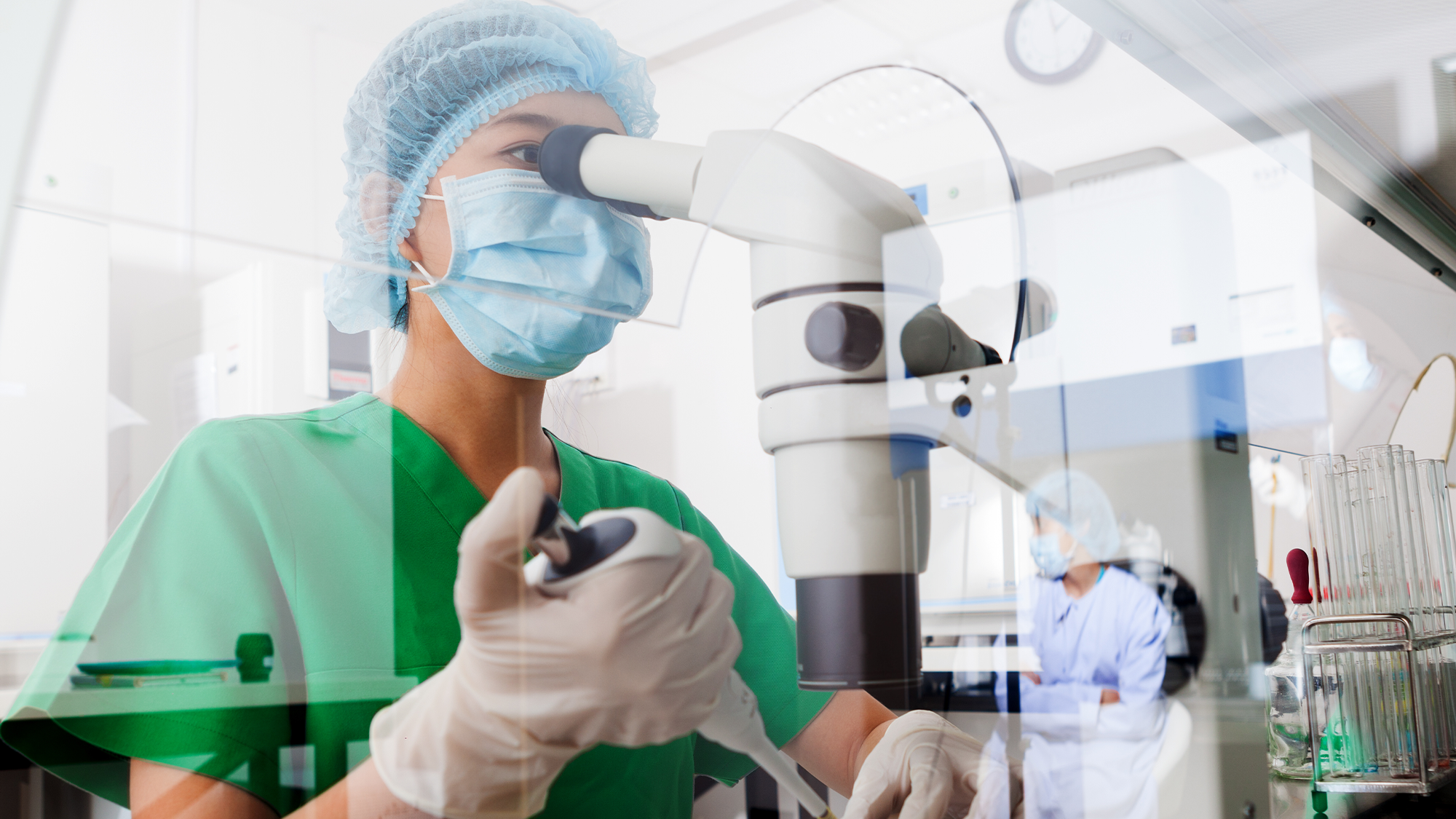

Researchers at Cleveland Clinic launched their next step in a study of a vaccine aimed at preventing triple-negative breast cancer. Triple-negative breast cancer is the most aggressive and lethal form of the disease, and accounts for roughly 10 to 15 percent of all breast cancers.
According to the American Cancer Society, the term “triple-negative breast cancer” means that the cancer cells don’t have estrogen or progesterone receptors (ER or PR) and also do not manufacture any or much of the protein called HER2. This means that the cells test negative on all three tests and these cancers don’t typically respond to hormonal or targeted therapies. These cancers are most common in patients under 40, who are Black, or who have a BRCA1 mutation. BRCA1 is a gene on chromosome 17 that typically helps to suppress cell growth and a person with certain mutations in the gene has a higher risk of developing some types of cancer.
[Related: A single HPV vaccine dose can protect against cervical cancer.]
The new phase 1b study will enroll cancer-free individuals who are at a high risk for developing breast cancer. Participants have also decided to voluntarily undergo prophylactic mastectomy to lower their risk of developing breast cancer.
Higher risk individuals typically carry genetic mutations–such as BRCA1– that put them at risk of developing triple-negative breast cancer or have high familial risk for developing any type of breast cancer.
The new phase of the trial will include roughly 6-12 patients and should wrap up by the end of 2023. Participants will receive three vaccinations administered two weeks apart and will be closely monitored for both side effects and immune response.
The vaccine is designed to work by targeting a lactation protein called alpha lactalbumin (α-lactalbumin). This protein is no longer found after lactation in normal, aging breast tissues, but is present in most triple-negative breast cancers. The vaccine is designed to prompt an immune response that attacks the tumor and keep it from growing if breast cancer develops.
It is based on pre-clinical research led by the late Vincent Tuohy, who led breast cancer research at Cleveland Clinic’s Lerner Research Institute. It was his research with mice that showed that activating the immune system against α-lactalbumin was safe and effective in preventing breast tumors.
[Related: Personalized vaccines could help the immune system fight cancer.]
This study is funded by the United States Department of Defense and will be conducted at Cleveland Clinic’s main campus in Cleveland, Ohio. The phase 1b clinical trial is conducted in partnership with Anixa Biosciences, Inc. and follows the ongoing phase 1a study. The earlier phase began in 2021 and includes patients who completed treatment for early-stage, triple-negative breast cancer within the past three years and do not have tumors, but are at high risk of recurrence. The phase 1a study is also expected to be complete in the fourth quarter of 2023.
“Triple-negative breast cancer is the form of the disease for which we have the least effective treatments,” said G. Thomas Budd from the Cleveland Clinic’s Taussig Cancer Institute and principal investigator of the study, in a press release. “Long term, we are hoping that this can be a true preventive vaccine that would be administered to cancer-free individuals to prevent them from developing this highly aggressive disease.”
The first therapeutic cancer vaccine (Provenge) was approved by the Food and Drug Administration (FDA) in 2010, ushering in a new era of cancer treatment. Therapeutic vaccines work by using a patient’s own immune system to fight the disease and are preventative vaccines like those used for cervical cancer, measles, or hepatitis.
